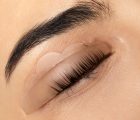 Have you ever heard of sun allergies? And would you even believe that some people cannot sunbathe at all? If you do not want to lose holiday days and warm sunshine, make sure whether any allergy affects you. Also, discover the most common types of sun allergies.
Have you ever heard of sun allergies? And would you even believe that some people cannot sunbathe at all? If you do not want to lose holiday days and warm sunshine, make sure whether any allergy affects you. Also, discover the most common types of sun allergies.
Solar allergy – factors
Factors that increase susceptibility to sun allergies are :
- race – sun allergy occurs mainly in the Caucasian race;
- genes – a person who has someone in a family who is allergic to the sun, is also exposed to the same type of allergies;
- medicine – sun allergy is increased by analgesics, diuretics, anti-migraine and anti-acne medicine;
- cosmetics – various cosmetic ingredients may cause sun allergy;
- skin diseases – including eczema.
Types of allergies to the sun
1. PMLE – polymorphic light eruption
A skin condition triggered by sunlight. It occurs immediately on those parts of the body that are exposed to UV rays (neckline, shoulders, back). It is especially common for people living in a temperate climate and manifests in the spring when the skin is suddenly exposed to the sun. It may appear for the first time in childhood or at a young age. The rash develops within a few hours after exposure to the sun and disappears spontaneously after several hours or several days. Luckily, it does not leave any traces and does not pose a threat to health and life. To mitigate its course, it is enough to apply an ointment with cortisol.
2. Drug-induced allergy
Taking some medicines and exposing your skin to the sun may manifest itself as a skin allergy. Its symptom is an itchy, red rash and blisters on the skin. This kind of allergy most often requires a visit to the doctor, performing tests and taking a new medicine. Do not forget that, before you go to the doctor, check the leaflet to see if the preparations you take do not cause an allergic reaction to the sun.
3. Solar urticaria
This allergy is most common for young women. It manifests itself in large and itchy changes that disappear within a few hours after covering the skin from radiation. In some cases, you may need an ointment with cortisol or a visit to the dermatologists. You can apply creams with a high filter as a preventive measure
Can sun allergies be treated by yourself?
It depends on the symptoms and ailments that accompany allergy. In mild cases, it is enough to use an ointment with cortisol or drink a dissolved tablet of calcium. If you additionally have a headache, nausea and a fever, then you should see a doctor immediately. These may be symptoms of an anaphylactic shock that is life-threatening.





Leave a Reply